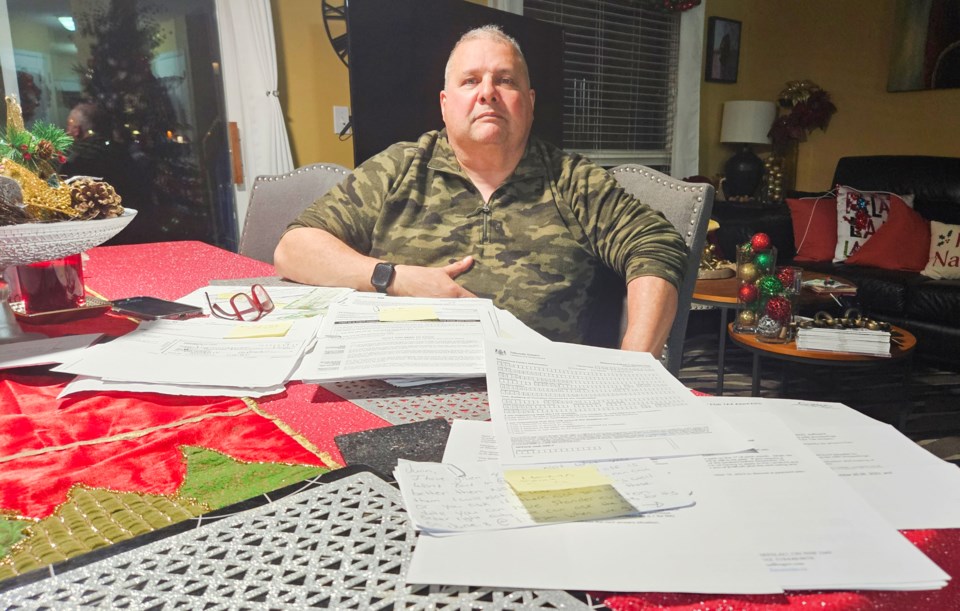Sitting at a table, a stack of documents spread out before him, Juan Monterroza is overcome with emotion – not only is the dream of helping his children pay for university being threatened, he says his family may lose their home.
His eyes well up as he explains the situation they’re in, pointing to “final notice” invoices from the city threatening to sell their house because of unpaid property taxes and noting the bank calls daily looking for overdue mortgage payments.
The cause of the situation, he explains, is an investment property where the tenant hasn’t paid rent in a year, combined with a lengthy eviction process that’s left the Monterrozas unable to cover all their bills.
“It’s a very serious situation,” said Juan. “I can’t sleep. My hair is going more white. It’s affecting my family relationships. It’s stress, stress, stress.”
It all began in 2022.
Juan and his wife, Yesenia, who moved to Canada from Colombia several years prior, had an opportunity to buy a second house in the city. A friend accepted a job in the United States and needed to sell quickly, they explained.
In hopes of turning a profit they could put toward paying for their children’s university costs, they figured out the financing and closed the deal. Monthly rent payments would be enough to cover mortgage payments, while they took care of property taxes, maintenance, etc. … at least that was the plan.
They rented out the 1,725-sq.-ft., detached, south end home, collecting first and last months rent – $6,400 collectively.
Those are the last dollars they’ve received. The tenant hasn’t paid rent in a year – several cheques along the way have bounced – amassing a $35,000 bill.
In order to stay financially afloat, Juan sold his truck and the family used up its savings.
That helped for a while, but they were only stop-gap measures. They still owe four months of mortgage payments on the investment home, as well as several thousands of dollars for property taxes on it and their family home.
Letters from the city threaten to seize both.
With little other choice, they put the investment property up for sale, but don’t expect to get their money back from the purchase given recent changes in the housing market.
“We don’t want that to happen to somebody else,” Yesenia said of why they decided to take their situation public. “It’s not fair.”
“The government is going to have to do something,” added Juan.
It would be understandable if the tenant lost their job or couldn’t pay rent for some reason, they say, but there’s no indication that’s the case. No reason for non-payment has been provided.
After two months of non-payment, the Monterrozas started the process of seeking an eviction through the Landlord and Tenant Board. However, due to a paperwork error, they recently needed to re-file and have yet to learn when and if a hearing will be held.
And that doesn’t offer a prompt fix.
“The Landlord and Tenant Board is experiencing delays in processing and resolving matters,” states a post on the agency’s website, noting the average wait for an eviction hearing for lack of rent payment is five months, down from eight to 10 months earlier in the year. “LTB is actively working to improve its service timelines and we thank you for your continued patience.”
In the meantime, the Monterrozas are left wondering how they'll keep their family home and preparing to take another financial hit when/if the investment house sells.
